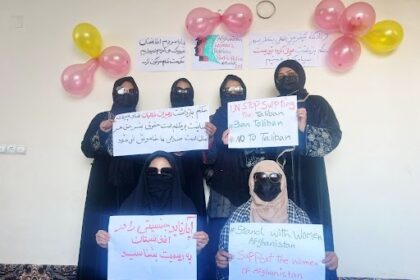RASC News Agency: The Taliban group has created thousands of fake accounts on social networks, including Twitter, under the names of citizens with the suffixes of northern provinces. Alongside deceptive advertisements and endorsement of tribal programs, this group aims to demonstrate through English and Persian texts that non-Pashton ethnicities, particularly the people of northern provinces, are satisfied with their regime and approve of their tribal behaviors towards other ethnic groups.
Sources from within the Taliban group, specifically within the Ministry of Defense and Ministry of Agriculture, have revealed to RASC News Agency that the Taliban group has employed thousands of trusted individuals in these two ministries. Each of these individuals is responsible for managing the created accounts under the names of citizens from northern provinces, indicating non-Pashton identities, such as “Ahmad Takhar” and “Maqsud Panjshiri.” They are tasked with producing and publishing hundreds of different texts on a daily basis in support of the people in these provinces are satisfied with the group’s actions and support them.
According to the sources, the Taliban group initiated this promotional campaign in all its ministries several months ago. Besides showcasing the satisfaction of non-Pashton citizens with the Taliban group’s programs, their duty is to create and publish supportive content about non-Pashtun citizens of Afghanistan on platforms such as Twitter, in order to show the world that Afghanistani people, especially non-Pashton citizens in Tajik-speaking provinces, support the Taliban group and hold resentment towards all previous government leaders, refusing to support them against the Taliban group.
Government sources from these two ministries, who provided information to RASC News Agency under the condition of anonymity, stated that the Taliban group has focused most of its advertising efforts within the Ministry of Agriculture. They have published fabricated texts through these fake pages, denying the presence of Pashton people from the tribal regions and the distribution of land to them in these provinces. They also consider the news about the transfer of migrants from the tribal regions to these provinces as false and reject it on behalf of the local people.
Sources within the Ministry of Agriculture revealed that the Taliban group has employed approximately 600 individuals for the creation and publication of content on these fake pages, using suffixes such as Takhar, Badakhshani, Panjshiri, and others. According to them, each employed individual is responsible for managing fifteen to twenty pages on platforms such as Facebook, Twitter, and other social networks.
The source stated, “The employed individuals also identify those who write opposing texts about the behaviors and programs of this group on these pages and report them to the Taliban intelligence.”
According to the source, the Taliban group has allocated sufficient funds for the advancement of this advertising campaign in each of its ministries. Their daily programs are controlled by the Public Relations Department of each ministry within the group, and it is their responsibility to carry out these programs.
On the other hand, sources within the Taliban’s Ministry of Defense continue to speak of and confirm the continuation of this deceitful and surprising trend. They acknowledge that within their public relations office, they have employed some trusted individuals to carry out propaganda campaigns on social media platforms, fueling hatred against the leaders and members of the Freedom Front and National Resistance Front. In particular, they target the members of the Resistance Council, promoting negative propaganda against them in support of the Taliban and opposing the opposing military factions, especially against the leaders of the previous government.
According to these sources, the Taliban has deliberately designed these fake accounts on social media platforms. The sources add, “What is deeply disturbing, but carefully calculated, in this aspect is that behind each of these fake accounts, such as Ahmad Kapisayi, Mohammad Mazari, Sharif Takhari, Soroush Panjshiri, and others, they aim to deceive the citizens of the country and portray their crimes. They aim to show that not only do Pashtons provide unconditional support to this group, but also people from other ethnicities in the north and throughout the country are satisfied with this group.”
It is noteworthy that despite the increasing dissatisfaction among the people due to discriminatory practices and ethnic-based actions carried out by this group, the oppressive rule of the Taliban over mass media and social networks prevents people from raising their voices against them.






